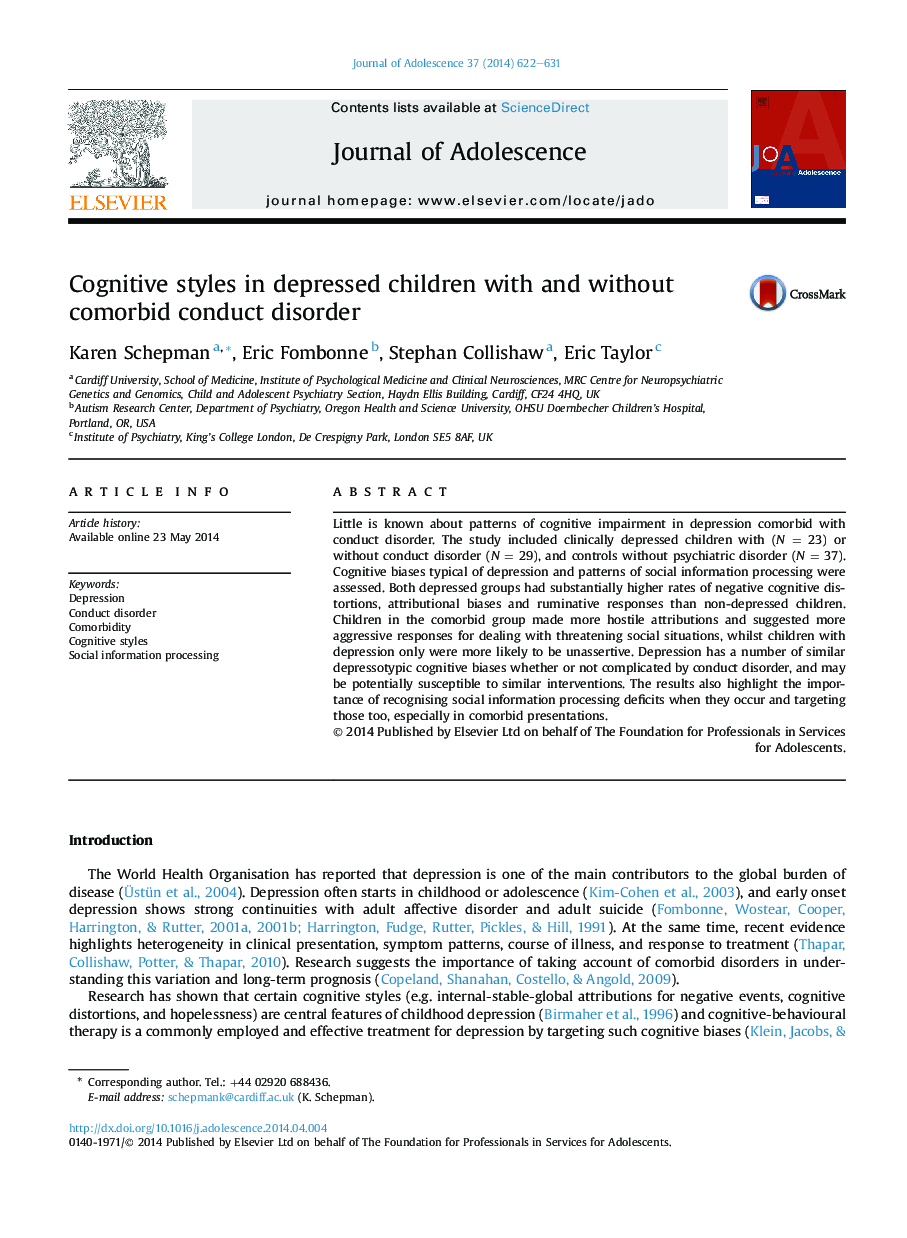| کد مقاله | کد نشریه | سال انتشار | مقاله انگلیسی | نسخه تمام متن |
|---|---|---|---|---|
| 880703 | 911679 | 2014 | 10 صفحه PDF | دانلود رایگان |
• Young people with depression often present with comorbid conduct disorder (CD).
• Depressotypic cognitions also affect those with comorbid CD.
• Social information processing biases differ according to comorbid CD.
• Treatments for depression should be tailored appropriately in presence of CD.
Little is known about patterns of cognitive impairment in depression comorbid with conduct disorder. The study included clinically depressed children with (N = 23) or without conduct disorder (N = 29), and controls without psychiatric disorder (N = 37). Cognitive biases typical of depression and patterns of social information processing were assessed. Both depressed groups had substantially higher rates of negative cognitive distortions, attributional biases and ruminative responses than non-depressed children. Children in the comorbid group made more hostile attributions and suggested more aggressive responses for dealing with threatening social situations, whilst children with depression only were more likely to be unassertive. Depression has a number of similar depressotypic cognitive biases whether or not complicated by conduct disorder, and may be potentially susceptible to similar interventions. The results also highlight the importance of recognising social information processing deficits when they occur and targeting those too, especially in comorbid presentations.
Journal: Journal of Adolescence - Volume 37, Issue 5, July 2014, Pages 622–631
